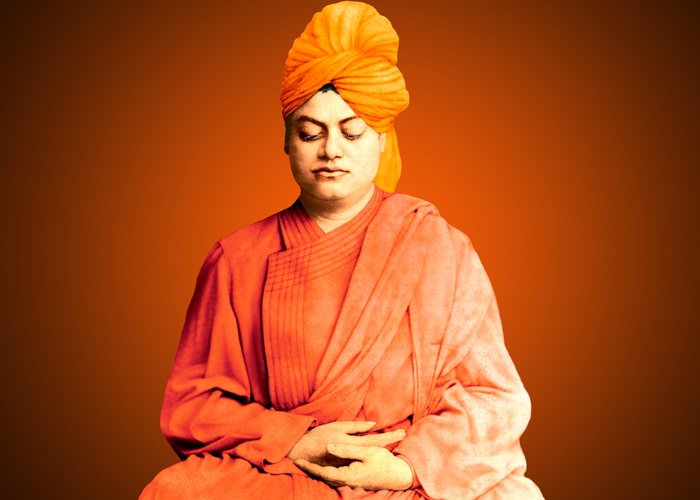About Swami Vivekananda:
- Swami Vivekananda (1863 – 1902), born Narendranath Datta,was a Hindu monk and one of the most celebrated spiritual leaders of India.
- He was the foremost disciple of Sri Ramakrishna Paramhamsa and a world spokesperson for Vedanta.
- He was hailed as a Dhyana Sidha, a meditation expert, by his guru Ramakrishna Paramhamsa.
- He attempted to combine Indian spirituality with Western material progress, maintaining that the two supplemented and complemented one another.
- He believed that the path to self-purification is through helping others. He encouraged people to engage in selfless service and to work towards the betterment of society.
- Through his teachings on the four yogas, the harmony of religions, divinity of the soul, and serving humanity as God, Vivekananda gave spiritual aspirants paths to that realization.
- Vivekananda represented Hinduism at the 1893 World’s Parliament of Religions convened during the World’s Columbian Exposition in Chicago.
- After his first visit to the West, Swami Vivekananda went back to India and founded the Ramakrishna Order at Belur outside of Kolkata in 1897.
Ramakrishna Order:
- The Ramakrishna Order, with headquarters in Kolkata, is one of the largest and most respected religious orders in India today.
- The Order was inspired by the great Bengali saint, Sri Ramakrishna.
- Shortly before his death in 1886, Ramakrishna encouraged his young disciples to formally renounce the world by giving them the ochre cloth of renunciation.
- He entrusted the care of these young men to his foremost disciple, Swami Vivekananda, who later, in 1897, founded the Ramakrishna Order.
- The Ramakrishna Order was formed along two parallel lines: The Ramakrishna Math, which is primarily dedicated to spiritual development, and the Ramakrishna Mission, which is dedicated to social service.
Q1) What is Vedanta philosophy?
Vedanta is a school of philosophy within Hinduism dealing with the nature of reality, one of the six orthodox systems (darshans) of Indian philosophy and the one that forms the basis of most modern schools of Hinduism. The word Vedanta is a compound of veda, “knowledge;” and anta, “end, conclusion;” translating to “the culmination of the Vedas.” It applies to the Upanishads, which were commentaries on the Vedas, the earliest sacred literature of India, and to the school arising from the “study” (mimamsa) of the Upanishads.”
Source: Swami Vivekananda Death Anniversary: Remembering His Motivational Quotes, and Thoughts
Last updated on June, 2025
→ UPSC Notification 2025 was released on 22nd January 2025.
→ UPSC Prelims Result 2025 is out now for the CSE held on 25 May 2025.
→ UPSC Prelims Question Paper 2025 and Unofficial Prelims Answer Key 2025 are available now.
→ UPSC Calendar 2026 is released on 15th May, 2025.
→ The UPSC Vacancy 2025 were released 1129, out of which 979 were for UPSC CSE and remaining 150 are for UPSC IFoS.
→ UPSC Mains 2025 will be conducted on 22nd August 2025.
→ UPSC Prelims 2026 will be conducted on 24th May, 2026 & UPSC Mains 2026 will be conducted on 21st August 2026.
→ The UPSC Selection Process is of 3 stages-Prelims, Mains and Interview.
→ UPSC Result 2024 is released with latest UPSC Marksheet 2024. Check Now!
→ UPSC Toppers List 2024 is released now. Shakti Dubey is UPSC AIR 1 2024 Topper.
→ Also check Best IAS Coaching in Delhi
























